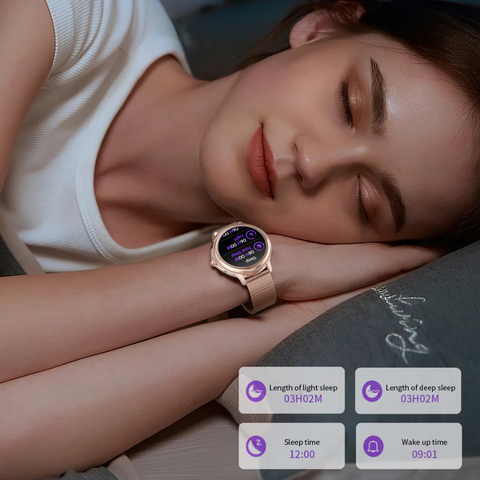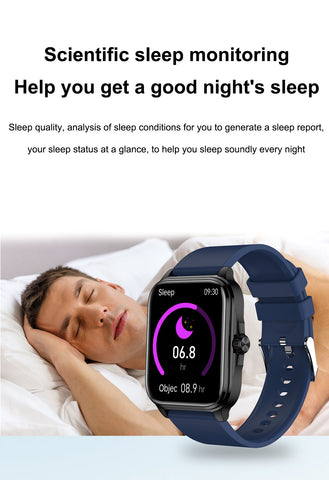How Smartwatches Monitor Our Sleep Stages and Sleep Needs
In today's digital age, smartwatches have become indispensable tools for monitoring various aspects of our health, including our sleep. These nifty gadgets can provide insights into our sleep patterns, breaking them down into different stages: REM sleep, light sleep, deep sleep, total sleep time, and wake time. But how exactly do they accomplish this? And how much of each sleep stage does our body actually need?
How Smartwatches Track Sleep
Smartwatches use a combination of sensors and algorithms to monitor sleep. Here’s a breakdown of the key technologies involved:
-
Accelerometers: These sensors detect movement. By analyzing your movement patterns, smartwatches can infer when you’re asleep or awake. Lack of movement usually indicates sleep, while consistent movement suggests wakefulness.
-
Heart Rate Monitors: Your heart rate varies during different sleep stages. Smartwatches with optical heart rate sensors can track these variations, helping to distinguish between light sleep, deep sleep, and REM sleep. During deep sleep, your heart rate is typically at its lowest, while REM sleep may cause slight increases.
-
Optical Sensors: These sensors, often using photoplethysmography (PPG), measure blood flow and oxygen levels, providing additional data to refine sleep stage detection.
-
Algorithms: Data from the sensors is processed using sophisticated algorithms to classify sleep stages. These algorithms are trained on extensive sleep study data to identify patterns corresponding to different sleep stages accurately.
Understanding Sleep Stages
Sleep is categorized into several stages, each serving a unique purpose in maintaining our overall health:
-
Light Sleep: This is the transitional phase between wakefulness and deeper sleep. It’s easier to wake up during this stage. Light sleep is essential for memory consolidation and cognitive function.
-
Deep Sleep: Also known as slow-wave sleep, this stage is crucial for physical restoration and growth. During deep sleep, your body repairs tissues, builds bone and muscle, and strengthens the immune system.
-
REM Sleep: REM (Rapid Eye Movement) sleep is when most dreaming occurs. It’s vital for emotional regulation, creativity, and memory processing. Your brain is highly active during REM sleep, while your body remains relaxed.
Sleep Time and Wake Time
- Total Sleep Time: This is the sum of all sleep stages. A smartwatch tracks the duration from the moment you fall asleep to when you wake up, excluding periods of wakefulness during the night.
- Wake Time: This includes the times you wake up during the night and in the morning. Frequent awakenings can indicate sleep disturbances or disorders.
How Much Sleep Do We Need?
The amount of sleep required varies by age and individual needs. However, general guidelines suggest:
- Adults: 7-9 hours of total sleep per night.
- Teens: 8-10 hours per night.
- Children (6-13 years): 9-11 hours per night.
- Toddlers: 11-14 hours per night.
Sleep Stage Requirements
- Light Sleep: Comprises about 50-60% of total sleep. There's no specific duration required, but it’s the bulk of your sleep cycle.
- Deep Sleep: Generally, 13-23% of total sleep is spent in deep sleep. For adults, this translates to approximately 1-2 hours per night.
- REM Sleep: Accounts for about 20-25% of total sleep, equating to roughly 90 minutes to 2 hours per night for most adults.
Smartwatches offer a convenient way to monitor and understand your sleep patterns. By tracking your sleep stages and total sleep time, they provide valuable insights that can help you improve your sleep hygiene and overall health. While the technology isn’t perfect, it’s a useful tool for gaining a better understanding of your sleep needs and ensuring you get enough of each crucial sleep stage. As always, for persistent sleep issues, it’s best to consult with a healthcare professional. Sleep well, and let your smartwatch guide you to a healthier, more rested self.













